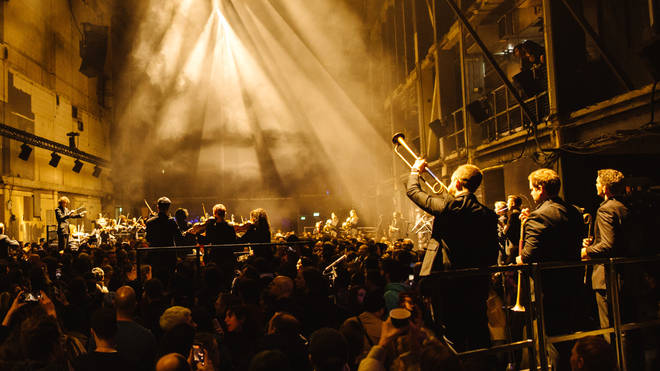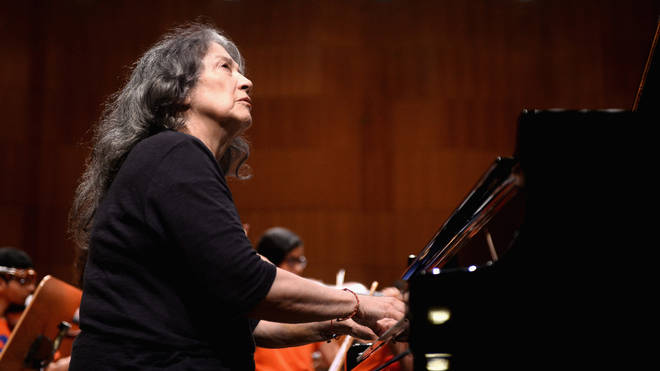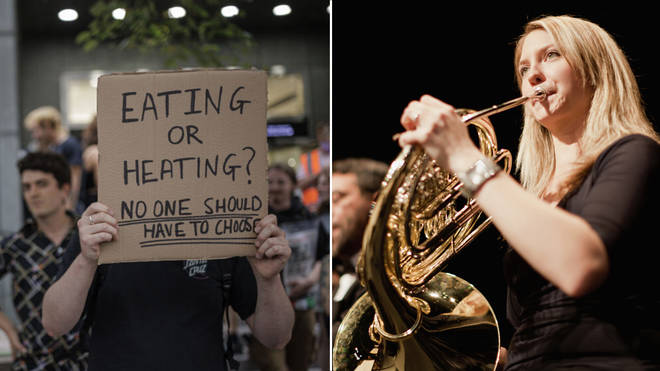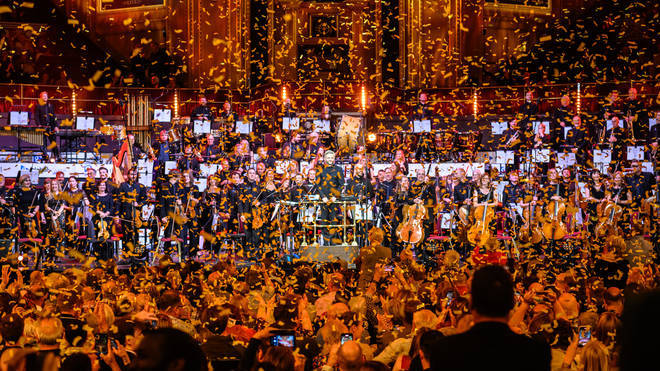19th-century orchestral grandeur meets the cavernous Printworks London for an immersive concert experience unlike any other...
Written at the start of the 19th century, Symphony No. 5 in C minor is one of the best-known works of the classical repertoire.
But arguably, perhaps the best way to experience the work is from the middle of the orchestra, where you can hear every instrument and fully immerse yourself in the soundscape carefully curated by the German maestro.
Often, this is a position only orchestral members themselves get to experience. But in this performance of the composer’s symphonic work, performed on 23 March 2023 by the Aurora Orchestra, 4,000 audience members had a chance to stand in between the 47-strong player ensemble over two evening concerts.
Hosted at Printworks London, a large industrial space which previously housed the printing press for British newspapers, the Daily Mail and Evening Standard, the concert saw the orchestra scattered across an array of platforms in the venue’s cavernous main hall. The audience was then able to move around between each section of the ensemble. Watch a video of the experience below.
In 2021, the Aurora Orchestra performed Beethoven’s Symphony No.7 at the same venue, which drew in an entirely new demographic of audience members to the unique immersive experience.
Asked why these two particular symphonies were chosen for this concert set-up, Jane Mitchell, Aurora’s creative director and principal flautist, told Classic FM: “They felt like really good starting points for us to try this new way of performing – partly because they’re so rhythmical and pack such a punch.
“They have this immediate character to all of the movements and there’s something about that immediacy and that rhythmic energy that infuses both pieces which make them incredibly suitable for this space.”
Principal conductor and founder of the orchestra, Nicholas Collon, added that the most exciting aspect of these concerts is the audience themselves.
“I was surprised by the strength of their response,” Collon told Classic FM. “And that’s partly due to the communal nature of these concerts, and having everyone squashed together.
“Also, as performers, we are already so aware of the power of music, it’s so exciting! But perhaps if you haven’t heard a symphony before, if you haven’t been so close up next to an orchestra, it is an extra thrilling thing to be a part of”.
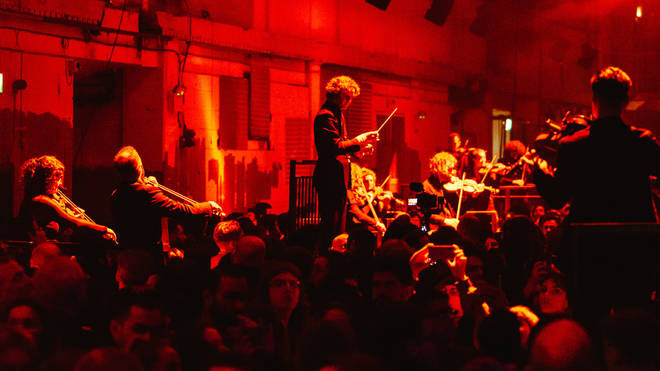
Founded by Collon in 2005, the Aurora Orchestra has developed a reputation for the musicians’ ability to perform concert works entirely by memory, and often in unique and unexpected spaces.
Their audiences tend to differ from the usual demographics found at classical concerts, especially at their recent Printworks performances.
“I would say the demographic of these concerts, to be fair, has been quite clearly younger than your average concert hall,” Collon admitted.
“But regardless of age, it’s amazing how attentive the audience is. Even though as a whole, our attention spans are going down the pan, I think because people get to move around during the movements of the symphony, they get to experience the piece from multiple different angles.
“Perhaps they’ve spent the first movement by double bases, then they might choose to be near the trumpets for the second, and they get a totally different experience!”
Mitchell agrees and echoed: “It’s such an overwhelming experience to be in the middle of an orchestra. I always feel that as a player myself, so I just want the audience to be able to experience that too.
“I think there’s so much about the texture of an orchestra and the immediacy of being right up close with instruments and seeing how the different parts fit together. You just don’t get to experience that in a concert hall when you’re more than five rows back.”
Having the orchestra so spread out, as to allow the audience to travel between the instruments, was a challenge both the musicians and Collon had to adapt to.
“You’re more spaced out than you’d normally be,” Collon explained. “On stage perhaps the entire orchestra would be 20 metres wide, but in Printworks it’s probably more like 100 metres wide.”
To ensure the musicians could hear each other, the orchestra worked with cutting-edge technology provided by Southby Productions and d&b audiotechnik, which meant the orchestra could accurately retain a naturally immersive sound, whilst also ensuring a balance in the overall soundscape.
Interweaved between the movements of Beethoven, the Aurora partnered with composer, Nwando Ebizie who created a selection of electronic music, film and poetry in response to the 19th-century symphonic work.
Read more:
“Having Ebizie’s work next to our playing is so special for people to experience,” Mitchell said. “One of my favourite things about this performance, is how the music transitions from the world of electronic music and how that works in this space, to what we’re doing.
“The kind of journey you go on through listening to the Beethoven, she takes you on an almost parallel journey as well.”
While already a special concert in its own right, the performance had an extra tinge of poignancy as the venue Printworks is due to close later this year, the orchestra’s concert being one of its last events.
However, this certainly won’t mean the end of Aurora’s exploration into idiosyncratic performance spaces. As Mitchell reassured, “the production team behind Printworks actually run several buildings like this and we’re very happy to be guided by the building [when planning a concert].
“So if someone shows us a space – it could be an old church or it could be one of these more industrial spaces – we’re interested in responding to that.
“Rather than us dictating what kind of venue we want to perform in, ‘oh it has to be this dimension and have this kind of acoustic’, we actually enjoy the process of walking into a space and going, ‘Okay, what do we do? What’s going to speak here, and how would that work?
“It is a brilliant challenge for us to do that. To work directly with the building itself, and create something that’s really going to resonate with the audience.”
